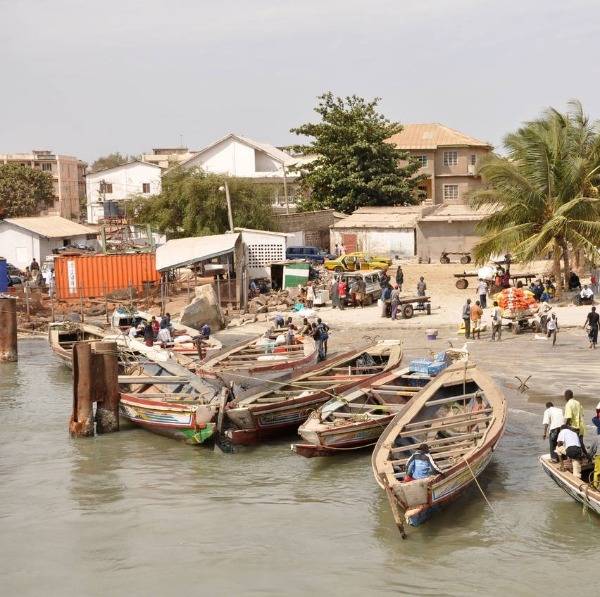-Nathalie-de-Clercq.jpg)
This article is a preview from the Summer 2014 edition of New Humanist. You can find out more and subscribe here.
Christ’s Entry Into Brussels (Portobello Books) by Dimitri Verhulst (trans. David Colmer)
Jesus Christ announces his return to Earth, and his selected point of entry is Brussels. The citizens of the Belgian capital receive the news with equanimity. There is no reason to get excited, at least in the metropolis painted by Dimitri Verhulst, a hive of carefree misanthropy. The weather is indifferent, “the nondescript kind of weather Belgium excels in, the weather that helps it maintain its position as a global leader in the consumption of antidepressants”. But even in the absence of rain, “because the inhabitants of this kingdom value the anonymity provided so perfectly by an umbrella, it was up to them to imagine their umbrellas.” As Jonathan Meades observed, when you go to Belgium, Rene Magritte stops looking like a surrealist and starts looking like a devastating social realist, an observation Verhulst merrily echoes.
As the glad news sinks in, reaction is mostly positive:
The free-thinkers expressed their enthusiasm, in anticipation of the philosophical riches that an encounter with such a shining light would be sure to generate. … Defeatists and kiss-my-arsists everywhere indulged in childish excitement, the sceptics put the mockers under lock and key – it was a moving sight.
Conspicuous in its failure to join in the general good cheer is the Catholic Church. The Catholic authorities are, in fact, distinctly disquieted. Sure, Belgium has been a popular destination for the Holy Family in the past – Mary has put in a few appearances to the faithful over the centuries – but this was different.
The clergy could put two and two together. They were pissing themselves with terror and there was hardly a dry habit in the house. This time it wasn’t the Mother coming their way, but the utmost authority in the whole universe. To call them to account – no other reason imaginable!
Verhulst’s account of the days leading up to Christ’s arrival consists almost entirely of his narrator’s sardonic observations of the growing excitement. There is barely any other plot to speak of – a death in the family, some marriage difficulties. Generally, however, we are watching the city as it comes out of its shell. Cars are banned from central streets out of fear of bombs, which adds to a carnival atmosphere. Policemen smile, window boxes are put out. The narrator speaks to his next-door neighbour for the first time, a turn of events that he regards with horror – and that leads to a shocking revelation – but the encounter essentially passes without incident.
This lack of action doesn’t matter, as Christ’s Entry rips along, propelled by Verhulst’s splendid picture of Belgium, a pantomime horse of a country, puzzling to outsiders and infuriating to its proud nationals. “In Belgium it’s easier to find a parliamentarian than someone who can sharpen your tools for you,” the narrator complains, and the country’s many, many governors realise that Christ’s Coming is a big event – they should organise something to mark it. In his depiction of the leviathan national committee formed to oversee the festivities, Verhulst’s satire reaches a magnificent pitch. Belgium’s six governments, Brussels’ nineteen mayors, the Members of the European Parliament, the Royals, NATO, everyone wants in on the biggest photo opportunity in two millennia. If any of this sounds somewhat parochial, Verhulst’s Belgium could easily be the UK. British readers will find themselves remembering our preparations for the Olympic Games.
The national hunt for a native speaker of Aramaic ends at Transit Centre 127, where stateless unfortunates huddle behind barbed wire, waiting to be deported. A teenage refugee called Ohanna is selected – the organising sages like the symbolism.
Choosing a kid was usually a safe bet, just ask the ad men. Kids could be an enormous pain in the neck, but once you put that detail out of your mind, it was easy to accept a child as a symbol of absolute innocence. What’s more, Ohanna had a cute little face that could have been plucked straight from a UNICEF calendar – the month of May, for instance.
Ohanna and her family are plucked from Transit Centre 127 and installed in one of Brussels’ finest hotels. Her dreams, previously of interest to precisely no one, are reported in the newspapers.
With Ohanna’s introduction, Verhulst’s entertaining but cynical narration abruptly acquires a spine of real humanity – a timely reminder that for some people Christ’s reappearance might be more than an unusual summer spectacle; that whether the Saviour lives or not some people desperately need real, rather than spiritual, salvation. And it’s Ohanna who seasons what might otherwise be a harmless romp with the tang of tragedy. A short book, Christ’s Entry is unserious and serious in pin-sharp stereo – it is both charming and angry as hell.

